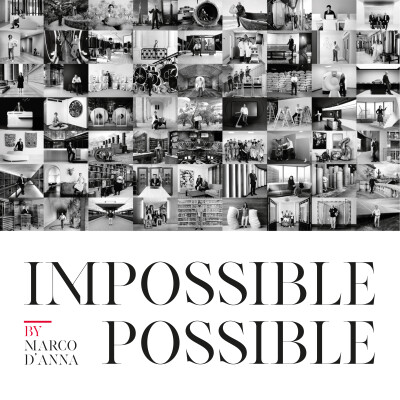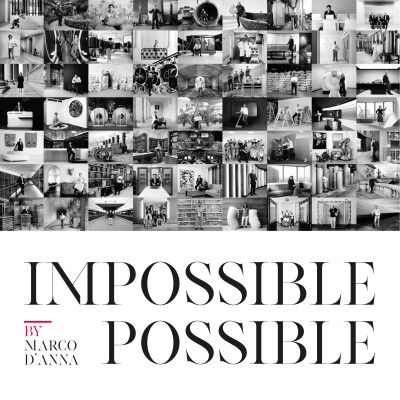Xavier NielIn 1981, I was 14 years old, my father bought me a computer, a small cheap computer, it costed 1000 francs, and I learnt to program. That is to say, in this time, I was actually very happy, but I had a sister who absolutely did not do what I asked her to do, and the computer was the opposite of my sister, it did what I asked it to do. From that moment on, I thought the computer was fantastic. I told myself I had to learn more about this thing. I learned to program, and in learning to program, I got skills that big companies didn't have, and I learnt things that people didn't know how to do, particularly in terms of communication. There was an emerging technology called Minitel. And in fact, the companies that sold the creation of Minitel services did not know how to implement them. So, with other young friends of my age, we worked for them at odd hours to create Minitel services for them. When I was about 18, I thought: "Why am I doing this through companies that are very nice, but why don't I do this full time? So I started creating companies. I did not study at all, which leads to some very funny jokes. Later, Pierre Berger used to tell me: 'You have absolutely no culture.' And so he would give me books with only a few pages, written in very large print, because he said: 'I'm sure you will be able to read this.' I think he understood me very well. I am not sure that being an entrepreneur was entirely in line with my parents' dreams. My father studied for 18 years after high school. I knew my father as a young student, so he studied law, medicine and science. He was always a student, so knowledge was more important to him than anything else. I am not sure that for him the fact that I was able to stop my studies at 18 was something normal or something he could have anticipated or dreamed of. But the fact that at some point, either to encourage me or to make me more curious, he bought a computer for himself and for me, I think I was actually the perfect excuse. And the fact that I became interested in it, in understanding computers, in using them, is a diametric change in my life that happened early on. Again, it was in December 1980, so I was a little over fourteen years old. By the age of eighteen I was earning my living and was financially independent. I moved from a fairly traditional path to something else. I have a fortune or a misfortune, which is to be systematically optimistic all the time. No matter what happens, always think that tomorrow will be better than today. This leads to some pretty particular things. I tend to forget bad experiences. And it makes me believe in the most unlikely things. I think I am the most naive person on earth. People have always thought the opposite. But every time I see an entrepreneur who is convinced that they are going to create the biggest company in the world next week, I believe them and I want to invest in them. So I have always had this optimism, which I think is an incredible blessing. Because if you are not optimistic about tomorrow, it is difficult to create and do things. It has always allowed me to do disproportionate things that have not always worked out. And what's more, when they don't work, my brain erases them. The thing is incredible. I thank my parents for giving me this brain. Of course I believe that we learn from our mistakes, consciously or unconsciously. But I do not want to remember them. And I always feel that tomorrow, will be better than today. There is an incredible thing: the day the lockdown began during the Covid crisis, I thought every day for three months that the next day would be the last day of the lockdown. And it is not because our politicians were telling us one thing or another, I was convinced that the next day the lockdown would be over and we would all go back to work normally. Which is a joke to those around me. And of course, on the day it happened, I told them: 'See, I told you.' 'Yes, but come on, you've been telling us that for three months. But the thing was there.' So I always have this optimism, no matter what the news is, no matter how bad it is, I always feel that it will turn out well or that it will end well. Sometimes I see people or entrepreneurs I can meet who have a bleak vision of tomorrow, and if you are not optimistic that you can create something big and incredible, you have no chance of success. So try to dream bigger than what is humanly possible. And that seems super important to me. So it is always about trying to take it into something bigger and with a lot of optimism. That is, not to get stuck in a micro subject, but to be able to expand it into something big. I try to be normal, to always try to give people a chance, no matter who they are, no matter what they have done. I don't really care about people's CVs. It seems that the older I get, the more bourgeois I become and the more I pay attention to people's CVs. I hope that is not true, but if people say it, it must be starting to be true, so it is not good. There are companies I know where you go through 30 interviews before you are hired and you get your chance. And I prefer to hire someone very quickly and tell them 'OK, if it doesn't work out in three months, we'll part ways. ' It's not a big deal. So maybe I have a reverse view of finding someone, spending less time on selection and more time trying to do something real. If you take Free, it was created with five people I recruited on the internet, so there were no interviews. I saw what they were doing on the Internet at the time, it was a very small Internet, but I saw what they were doing online, what excited them. And from that moment on, I selected based on criteria that may not be completely objective, but that worked for me. Then it went pretty well, so we must not have made too many mistakes. So probably the thing I am most proud of in my journey is that, together with my colleagues here, we have returned billions or tens of billions of euros of purchasing power to the French. That's something. There was a former economy minister who said that we had done more for the purchasing power of the French than they had done in five years, or than any other government had done in five years. I thought that was fantastic. So I thank them for that incredible publicity. I think we are very proud of that, very proud that we have collectively broken monopolies. Again, it is a question of recognising that there are monopolies in certain places, that these monopolies are a burden on the French or in other countries, and how we are able to break them. The concept of trust, as I always tell my children, is something that is easy to give, but even easier to take away. And when we take it back before we give it again, it is very complicated. So yes, the notion of trust is something that is extremely important in the relationship that we can have with any form of counterpart, whether they are people or companies. We are operators and we have 22 or 23 million subscribers. We know very well that it is much easier to attract someone who does not know you than to re-attract someone we have lost. We all come from the same place, we all are going to the same place. So there is no superior human being, there is no human being who is superior to others. And I think that is an extremely important criterion. We are all equal and it is not just a phrase. It means we are all made of the same stuff. There are no superior beings and inferior beings. The Pope or the President of a country is not superior to the man who sweeps or cleans my office every day. So I think we are all equal. Probably when I get older, when I become more bourgeois again, I might be less than I used to be. I hope not, but I think life has taught me incredibly well that the advice given to me by a taxi driver has the same value as the advice given to me by a company that has spent a thousand hours on a particular subject, because they each have a different perception and perhaps sometimes the instant perception is more accurate and fairer than the deeply studied version. I think life has taught me that. We are all incredibly equal. And from that moment on we have to draw the necessary conclusions. The value that is important to me is the family, because you know that in times of difficulty, the family is what remains. That is to say, when you have difficult paths, when everything goes well, we have a lot of friends, when everything goes wrong, we have no friends left, but there is still one thing that remains, and that is family. And I think that is very important. I am always in admiration when I see mothers in court defending a son or a daughter who has done something incredibly stupid, completely unforgivable. You always see the mother explaining how lovely her son is, how he could not have done that. And I think that connection is an incredible connection. For me it is something extremely important.




